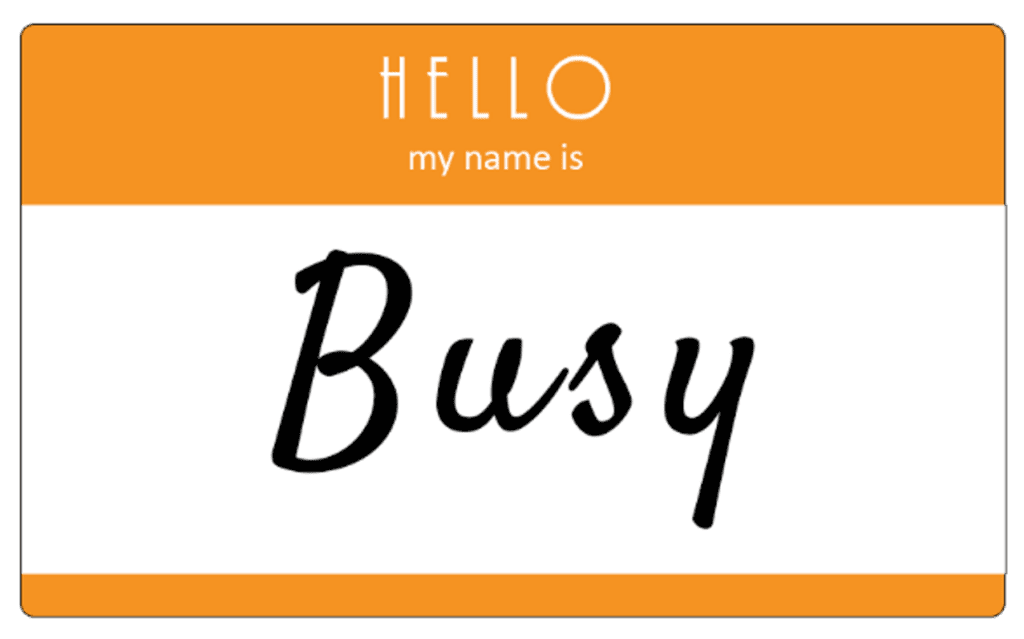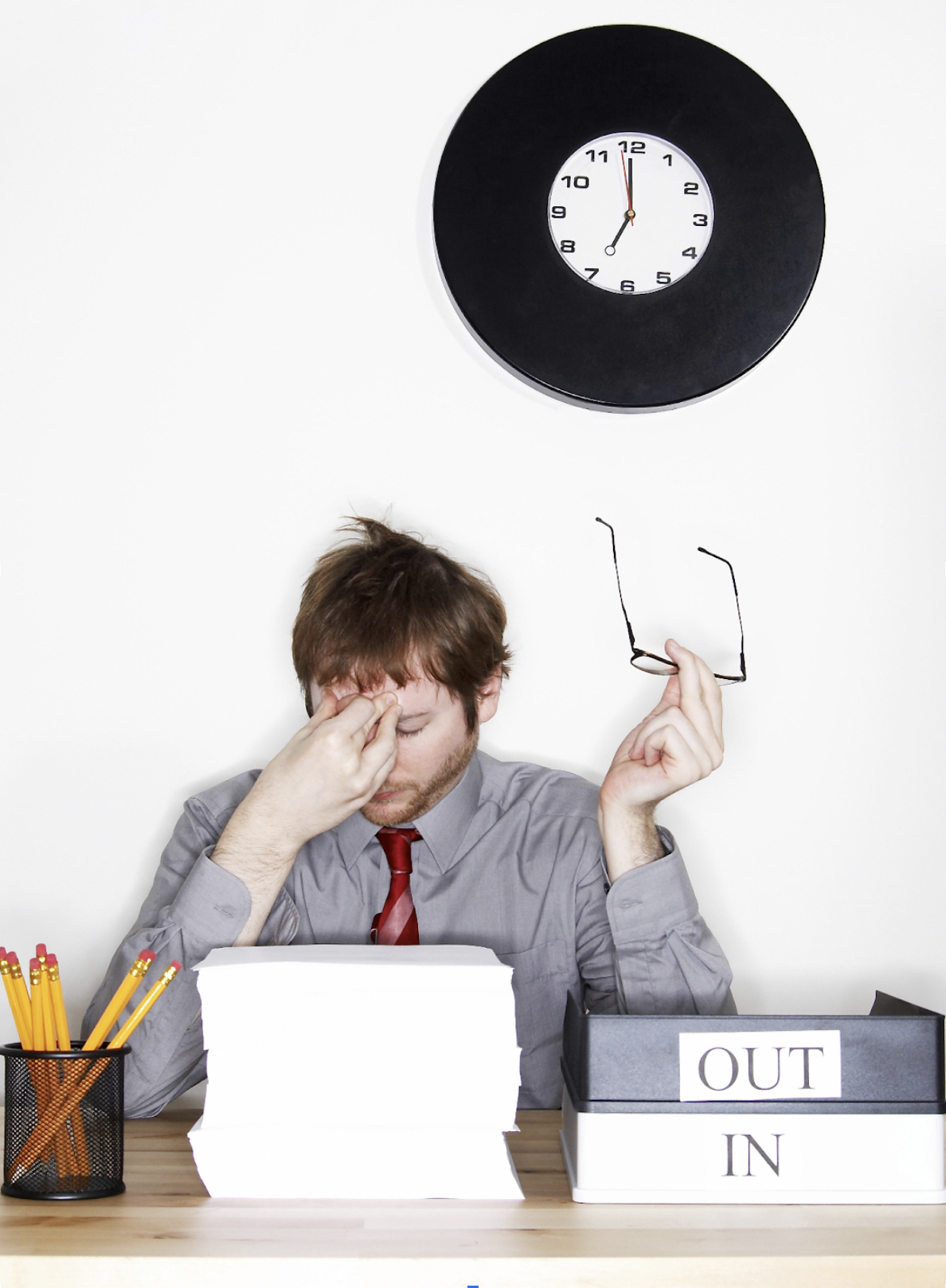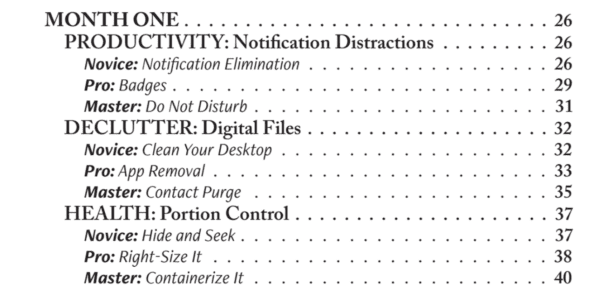Why do we wear our busyness like a badge? When anyone asks us how we've been, we proudly say, ‘You know the usual. Busy busy!'
It makes us feel good to know that we're busy. Somebody wants us; somebody needs us. We are our own worst enemies.

Academic research suggests that our days are becoming increasingly jam-packed. It states that the analysis of holiday letters indicates that references to “crazy schedules” have risen dramatically since the 1960s. An analysis of Gallup data by Harvard Business School’s Ashley Whillans found that the percentage of employed Americans reporting they “never had enough time” rose from 70% in 2011 to 80% in 2018.
We must step away from the hectic pace of the always-on modern workplace, which leaves no room for breathing if we want to do meaningful work and become more creative and productive.
However, the majority of us lean in rather than step back. When we should be doing less, we put more effort into compensating for our lack of originality.
In any case, why is this happening? Why do we get so busy when we say we don't want to?
It’s an unrealistic expectation for some people. You believe there is no other option because your business is overworked and understaffed. For others, poor time management skills may be the cause. You have little time to concentrate on what needs to be done because you are bouncing between tasks.
But there’s another common scenario: We like being busy.
So if busyness is so bad, what’s the alternative? Sloth? Laziness? Apathy? Busyness isn’t just the absence of time; it’s also the absence of choice.
Researchers have proven the positive impact of activities that starkly contrast with busyness for years.
Here are just a few:
Relaxation: Taking time to rest and relax can reduce stress, improve mood, and boost creativity. Research shows that when we take breaks from work and allow our minds to wander, we often develop innovative ideas and solutions.
Taking a break doesn’t always mean going out in nature since it’s a luxury that not all of us get. So what’s the alternative?
This can be achieved by creating a similar stimulus indoors using products such as Doterra Oils, Grow Fragrance, Brain.fm**, and many more. These allow individuals to create a relaxing environment without going through much trouble.
Mindfulness and meditation: Both of these have been shown to reduce anxiety, depression, and stress. These practices help us focus on the present moment and increase awareness of our thoughts and emotions.
Mindfulness and meditation aren’t easy to achieve. People who might initially find it difficult can use apps such as Calm to practice guided meditation. Devices such as Apollo Neuro** can be used to promote well-being by stimulating or relaxing the nervous system.
Physical activity: Regular movement can improve physical health, reduce stress, and boost mood. Exercise releases endorphins, which are feel-good chemicals that can enhance our well-being.
Exposure to Nature: Spending time in nature has been shown to reduce stress, improve mood, and increase cognitive functioning. Research suggests that even a short walk in nature can positively impact mental health. Individuals can create stimuli indoors as an alternative to going out if they can't afford the luxury of being outside. But outside is definitely better!
Social connections: Maintaining social connections with others is vital for overall well-being. Research shows that social support can help reduce stress and improve mental health. This does not, however, imply that busyness is solely a personal problem. It is the individual's and the organization's responsibility to resolve it, as with most focus and time management issues.
Simply stating that you want to be less busy is not sufficient. We've already seen that being too busy causes poor decision-making and burnout. Instead, suppose you want to escape the busyness trap. In that case, you need to take proper measures to ensure you and the people around you are not being burned out due to excessive workload. Courtney Carver captures this well: ‘When we try to juggle everything, we can't enjoy anything.'
Five measures you can take to manage your time and busyness:
1. Prioritize tasks: Encourage employees to prioritize their tasks by urgency and importance. This helps them to focus on the most critical tasks first and avoid feeling overwhelmed. This can also be achieved by understanding where your time is going or keeping track of your time. This will help you set guardrails during the workday.
This can be done in two ways-
· First, track where the time is being spent. Rescue Time** is an app that shows you how much time is spent and where.
· Secondly, prioritize time by blocking out when you can accept meetings. Apps such as Acuity Scheduling** can be used for this.
2. Use of Time Blocking: Where busy turns into busyness is when you give it the freedom to control your schedule. There are always fires to be put out and meetings to attend.

Instead, you can reduce daily busyness by setting aside time for it. One method that helps with this is time blocking. Simply put, time blocking is planning out time in your day in advance and dedicating specific “blocks” for certain tasks or responsibilities. Cal Newport, the author of Deep Work, summarizes the impact of this technique well ‘A 40-hour time-blocked work week, I estimate, produces the same amount of output as a 60+ hour work week pursued without structure.’
3. Delegate Tasks: Encourage employees to delegate tasks to team members with the necessary skills and expertise. This allows employees to focus on their core responsibilities and avoid being overloaded with work. Communication is the key to delegation since it’s important to understand the skill and expertise. Delegation and communication can be done quickly through the help of tools like Clickup**.
4. Set realistic goals: Set realistic goals and deadlines to prevent employees from feeling overworked and stressed. Setting achievable goals helps employees focus on their tasks and feel accomplished. This can only be done when individuals work on themselves to understand their key strengths and weaknesses. Our Powered Path Playbook™ is the ultimate tool for reflection and planning.
5. Providing support: Provide support and resources to employees struggling with the workload. This can include training on time management, stress management, and workload management, as well as access to mental health resources and support services.
Being busy in the right way can positively impact your self-esteem. But on the other hand, being overbooked can harm your overall well-being if you're so busy that you can't practice self-care, spend time with loved ones, or enjoy your free time. Changing your priorities can significantly improve your quality of life by removing yourself from work or other obligations that aren't necessary and intentionally resting and taking time for yourself, even though doing so may be difficult.
As Henry David Thoreau once said,
“It is not enough to be busy. So are the ants. The question is: What are we busy with?”
What about you? What do you want to advance?
Your Business or Busyness?
It’s time to let go of the Good to Make Room for the GREAT.
Post co-written by Marcey Rader and Rijul Arora.
Note: ** are affiliate links, meaning that we'll earn a commission if you choose to purchase. This commission comes at no additional cost to you. We use these ourselves and recommend them regardless, but if we can earn a small commission, why not?


